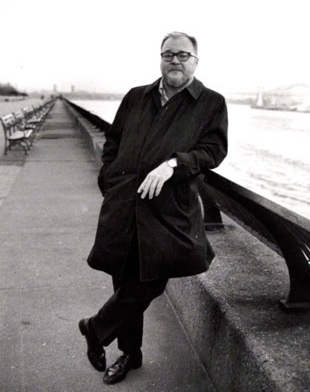In a year the nightingales were said to be so loud
they drowned out slumber, and peafowl strolled screaming
beside the ruined nunnery, through the long evening
of a dazzled pub crawl, the halcyon color, portholed
by those eye- spots’ stunning tapestry, unsettled
the pastoral nightfall with amazements opening.
Months later, intermission in a pub on Fifty- fifth Street
found one of them still breathless, the other quizzical,
acting the philistine, puncturing Stravinsky—“Tell
me, what was that racket in the orchestra about?”—
hauling down the Firebird, harum-scarum, like a kite,
a burnished, breathing wreck that didn’t hurt at all.
Among the Bronx Zoo’s exiled jungle fowl, they heard
through headphones of a separating panic, the bellbird
reiterate its single chong, a scream nobody answered.
When he mourned, “The poetry is gone,” she quailed,
seeing how his hands shook, sobered into feeling old.
By midnight, yet another fifth would have been killed.
A Sunday morning, the November of their cataclysm
(Dylan Thomas brought in in extremis to St. Vincent’s,
that same week, a symptomatic datum) found them
wandering a downtown churchyard. Among its headstones,
while from unruined choirs the noise of Christendom
poured over Wall Street, a benison in vestments,
a late thrush paused, in transit from some grizzled
spruce bog to the humid equatorial fireside: berryeyed,
bark-brown above, with dark hints of trauma
in the stigmata of its underparts—or so, too bruised
just then to have invented anything so fancy,
later, re- embroidering a retrospect, she had supposed.
In gray England, years of muted recrimination (then
dead silence) later, she could not have said how many
spoiled takeoffs, how many entanglements gone sodden,
how many gaudy evenings made frantic by just one
insomniac nightingale, how many liaisons gone down
screaming in a stroll beside the ruined nunnery;
a kingfisher’s burnished plunge, the color
of felicity afire, came glancing like an arrow
through landscapes of untended memory: ardor
illuminating with its terrifying currency
now no mere glimpse, no porthole vista
but, down on down, the uninhabitable sorrow.


